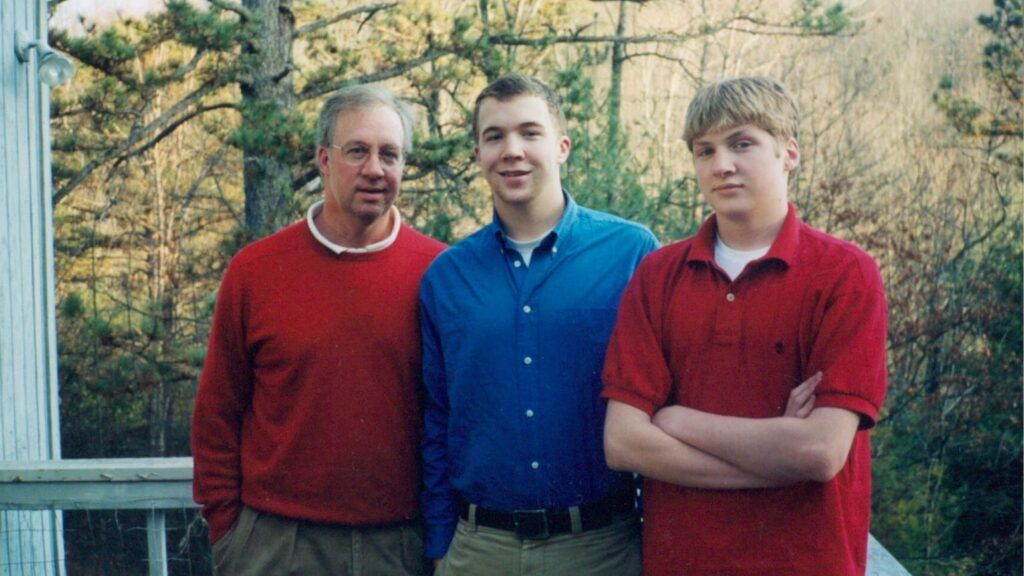Stephen Grant was at a work retreat, when the leaders asked everyone to share what they hoped their legacy would be at the end of their life. It was then that he said the words that would change his life.
Grant had been struggling up to that point. His younger son, Kelly, had died two weeks earlier and nothing seemed like it mattered. But the question got him thinking about his legacy, and when it was his turn to share, Grant didn’t hesitate.
“I said, ‘I want my legacy to be that I, that I did everything I could to help adolescents and young adults who struggle with addiction, substance abuse and mental health or mental illness,'” Grant told Guideposts.org.
He was just as surprised as everyone else at what he had said, but he believed that God had put the idea in his heart.
When his colleagues asked him why that was the legacy he chose, Grant answered truthfully and explained how substance abuse had led to his divorce and the death of his two sons.
Grant’s journey to that moment had started years earlier, when his boys were teenagers.
From the outside, Grant looked like he had a normal family. His two sons were active in sports and band at school, and he was a devoted father.
Things changed one day when someone came to clean the carpets and found beer bottles hidden under the sofa. Grant suspected one of his sons was drinking and took his oldest, Chris, to a psychiatrist. It was there he learned the truth.
“The [doctor said], “Your son is being controlled by alcohol and drugs right now,” Grant said. “That was when he was about 15 years old.”
Grant didn’t think of himself as a naive parent, but he was shocked at the psychiatrist’s revelation. Chris was a normal kid. He played soccer and basketball. How could a kid like that develop an alcohol problem?
Despite his shock, Grant jumped into action. He researched rehabilitation programs, found one for Chris to be admitted to, and set strict rules for who his spent time with and where they could go.
Five stints in rehab later, Chris was still struggling. But he remained close with his father, calling every day and reiterating his desire to stay clean. When he didn’t call one day in 2005, Grant went home to check on him. He had passed away of an overdose.
The death was devastating, but not a surprise.
“I just knew that if he continued doing what he was doing after everything we’d tried, then the Lord was going to take him, eventually,” Grant said. “And I feel he’s at peace now.”
After Chris’s death, Grant insisted his younger son, Kelly, return to college, thinking it would help him maintain a sense of normalcy.
“I underestimated his relationship with his brother to a large degree,” Grant explained. “I thought they were very different, but they were very close.”
At school, Kelly got involved with a band that performed at South by Southwest in Texas. It wasn’t until one of the band members called Grant, that he learned Kelly had started taking heroin.
“I thought, ‘I can’t believe this has is happening to me again,'” Grant recalled.
Grant brought his son back from college and started drug testing him every day. Kelly made improvements and they agreed he could go back to school on the condition that if he relapsed, he would attend rehab. The two remained close and watched Mad Men together every Sunday. When Kelly didn’t respond to Grant’s texts one Sunday, he got worried and went over to his son’s apartment.
Grant broke into the house with a brick and found his son dead from an overdose. The loss of his second son was, Grant said, “a gut punch.”
It wasn’t until that moment at the retreat that Grant decided he couldn’t let his grief drag him under.
He decided to do something to help other families ensure this would not be their story. The result is the nonprofit, Chris and Kelly’s HOPE Foundation, which helps families and organizations in the fight against addiction. The foundation, based in Greenville, South Carolina, has given scholarships to young people trying to get into good rehab facilities. The nonprofit has donated money to 150 organizations in the past seven years.
Grant is also spreading his message of hope in his book Don’t Forget Me, where he shares his story in the hopes that other parents of kids who are struggling will feel less alone. The book breaks down common misconceptions about children who struggle with substance abuse, and how their parents can help them.
Grant lives with the pain of the loss of his sons every day, but his faith and work with the foundation give him hope.
“God has a plan and I can’t say I agree with it, but I understand there is one,” Grant said. “I believe I will see them again.”







